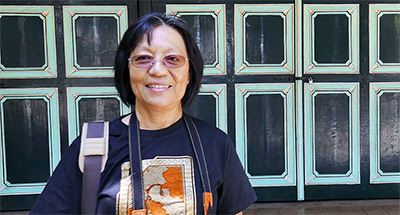Background
I am a human geographer working in the critical analysis of ecological sustainability. I was born and raised in Indonesia with a technical training and professional experience in soil sciences and remote sensing. In becoming a geographer, I combine this technical knowledge with insights from political economy, for a more holistic approach to understanding natural resource management and processes of agrarian change. In my classes, I urge students to critically assess how historical and environmental processes link people and influence human relationships.
Education
- PhD, Geography, University of California, Berkeley, 1994
- MA, Geography, University of Hawai‘i at Mānoa, 1985
- Sarjana, Soil Sciences, Bogor Agricultural University, Indonesia, 1978
Courses
- GEO 102: World Regional Geography
- GEO 322: Globalization and Environment
- GEO 422: Agriculture, Food and Society
- GEO 426: Environment, Resources and Society
- GEO 637: Environment and Development
- GEO 639: Community-based Natural Resource Management
- GEO 696: Research Design/Methods in Geography
- GEO 763: Research Seminar: Agricultural Geography
Research
As a political ecologist I utilize multi-scale analysis to examine environmental and landscape changes in the context of the global political economy. My past work in Indonesia focused on the ways global commodity market affected tenure relations and land management in the uplands of Java. Since moving to Hawai‘i in 1997, I examine the ways agriculture has transitioned from one dominated by the plantation system to its current form. After more than 25 years I return to Indonesia, and begin to understand how shifting consumer demands, capital investments, and technical developments reshape the agro-food system.
Community Engagement
Issues of agriculture and food tend to elicit passionate discussions, with almost everybody bringing pre-conceived opinions. My role is to situate these discussions in the broader context, to steer them to informed productive engagements. While in Indonesia on a Fulbright fellowship, I spoke at various fora to encourage students to critically examine food beyond the predominant productionist point of view.



